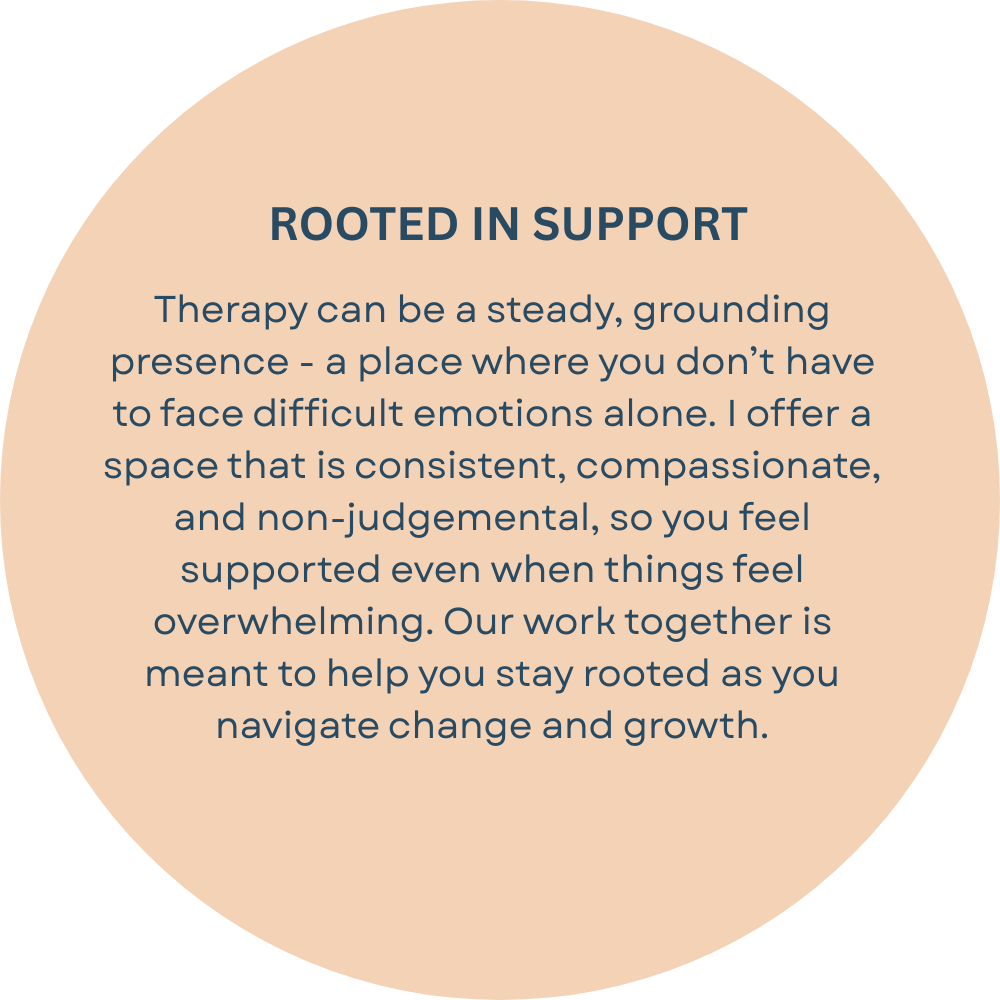Hi, I’m Marnie
I’m a Licensed Clinical Social Worker with more than 20 years of experience, including 15 years in private practice. Over that time, I’ve had the privilege of supporting people through life’s challenges — helping them find resilience, relief, and new ways forward.
My style is relational and compassionate. I am a Level III AEDP (Accelerated Experiential Dynamic Psychotherapy) therapist, and also have training in psychodynamic therapy, CBT, DBT, and mindfulness. My training allows me to tailor each session and meet clients where they are.
I work with both adults and teens, with a special focus on supporting those exploring gender and sexual identity. Creating a space where clients feel truly seen, affirmed, and safe is central to my work.
I’ve also pursued advanced training in psychedelic therapy and integration, including certification through Fluence and MAPS training to prepare for MDMA-assisted therapy for PTSD once FDA-approved.
Education & Training
BFA, New York University
MSW, Hunter School of Social Work
Psychedelic Therapy & Integration Certificate, Fluence
MAPS Training in MDMA-assisted therapy for PTSD
Level III AEDP Therapist

My Approach
These three pillars anchor my approach and the space I create with clients
FAQs
-
Yes, I’m currently accepting new clients for virtual appointments only.
If you’d like to get started, call my office at (917) 685-7712 or fill out my contact form and I’ll be in touch!
-
I am located in Brooklyn, NY.
-
YES, I strive to have a paperless practice.
Before your first session you will be sent an email with a link to your individual client portal. Please follow the link and fill out the associated intake forms about my practice and answer a few questions about yourself. This helps us get to work in a timely fashion.
-
My individual rate is $250 per 50 minute session.
My fee may increase over time and is based on my advanced training.
-
I see most of my clients weekly because I find they tend to get the most benefit from this rhythm. Over time, appointment frequency may shift as we discover what rhythm is right for you.
-
Health insurance can be tricky to navigate, and every plan is different. Many policies include what’s called “out-of-network” benefits, which may reimburse you for part of your therapy costs. Depending on your plan, this could mean that 50–80% of my fee is covered after you meet your deductible.
Some employers also offer Health Savings Accounts (HSA), which let you use pre-tax dollars to pay for therapy and other medical expenses — helping to reduce your overall costs.
The best way to know what your plan will cover is to call your insurance provider directly. Here are a few helpful questions you can ask:
Does my plan include out-of-network coverage for mental health?
Do I need pre-authorization for psychotherapy?
Does my plan include a Health Savings Account (HSA)?
What is the policy year (for example, Jan 1 – Dec 31)?
Is there an annual deductible for out-of-network mental health benefits? If yes, what is it and have I met it?
What percentage of each session fee will be reimbursed?
Is there a limit on the number of sessions per year?
What is the annual cap on out-of-pocket expenses?
What is considered the “reasonable and customary fee” for therapy in my area?
Will you need a CPT code for the type of therapy session I’ll be attending? (If so, I can provide that.)
-
My practice is diverse. I work with adults from a variety of cultural, economic, and spiritual backgrounds. I also offer psychotherapy to individuals ages 14 and up. I specialize in gender and sexuality.
-
Everything you and I talk about in therapy is confidential. The only exceptions to confidentiality include, but are not limited to: reporting child, elder and dependent adult abuse; when a client makes a reasonable threat of violence towards a reasonably identifiable victim; when the client is dangerous to themselves, or another person, or when there is a court order. If confidentiality is a concern for you, please do not hesitate to bring this up with me at any time.
-
AEDP psychotherapy is an approach that seeks to help you feel better by helping you process the overwhelming emotions that come with trauma in a way that facilitates new safe experiences of relationships and actually changes your brain.
Crisis and suffering provide opportunities to awaken buried capacities. The key to AEDP is creating safe relationships that can really transform your suffering into moments of healing.
AEDP draws from interpersonal neurobiology and affective neuroscience, attachment theory, emotion theory and body-focused/somatic approaches.
-
Basically, this is up to you. The length of therapy is truly a case-by-case basis taking into consideration the reason you are coming and what your goals are.
-
I have a 48 hour cancellation policy and a full fee will be charged if a cancellation occurs after this window.





